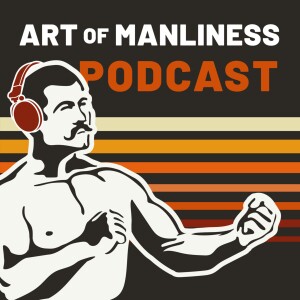
The World of the Transcendentalists and the Rise of Modern Individualism
 2022-02-16
2022-02-16
The town of Concord, Massachusetts has been famous twice in history. First as the location of the "shot heard round the world" which kickstarted the American Revolution in the 18th century, and second, as the home of several famous writers and thinkers, including Ralph Waldo Emerson and Henry David Thoreau, in the 19th.
My guest today, professor of history Robert A. Gross, has written landmark books on both of these periods in Concord's history. The first, called The Minutemen and Their World, was published in 1976. Now, nearly 50 years later, he's published a new volume called The Transcendentalists and Their World.
In both books, Bob delves into the details of everyday life in Concord in order to illuminate broader trends and forces in American culture. In the case of his second book, he does so to explore how the communal, hierarchical nature of life in America during the Revolutionary period shifted to a more autonomous and bottom-up ethos during the time of transcendentalism — a movement which prized individuality over conformity and intuition over logic, believed divinity existed in each person and throughout nature, and celebrated the authority of the individual over the authority of institutions.
In today's episode, Bob and I discuss how changing forces in commerce and religion, as well as a fervent, emerging interest in self-improvement, led to this shift, and how thinkers like Emerson and Thoreau set a new course for what it means to live a life of integrity. We end our conversation with what the world of the transcendentalists has to tell us in our own time period, which, like theirs, is marked by the widespread rejection of top-down gatekeepers.
Resources Related to the Podcast- Bob's 1976 book The Minutemen and Their World
- Ezra Ripley
- The Lyceum movement
- AoM Article: A Man's Guide to Self-Reliance
- AoM Podcast #324: What It Really Means to Be Self-Reliant
- AoM Podcast: #417: The Mystical Life of Henry David Thoreau
- AoM Podcast #575: A Treasure Trove of American Philosophy
- AoM Article: How to REALLY Avoid Living a Life of Quiet Desperation
- Bob's Faculty Page
More Episodes
 2023-04-19
2023-04-19
 2023-04-17
2023-04-17
 2023-04-12
2023-04-12
 2023-04-03
2023-04-03
 2023-03-29
2023-03-29
 2023-03-22
2023-03-22
 2023-03-20
2023-03-20
 2023-03-13
2023-03-13
 2023-03-08
2023-03-08
 2023-03-01
2023-03-01
 2023-02-20
2023-02-20
Create your
podcast in
minutes
- Full-featured podcast site
- Unlimited storage and bandwidth
- Comprehensive podcast stats
- Distribute to Apple Podcasts, Spotify, and more
- Make money with your podcast
It is Free
- Privacy Policy
- Cookie Policy
- Terms of Use
- Consent Preferences
- Copyright © 2015-2024 Podbean.com




